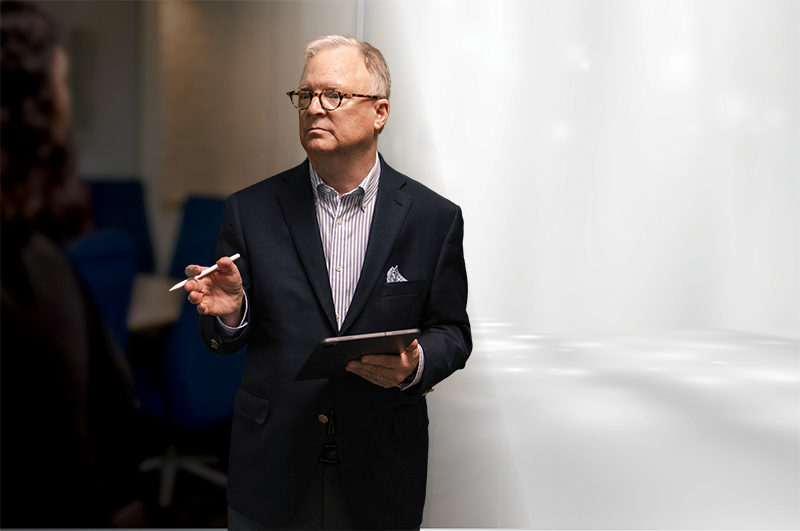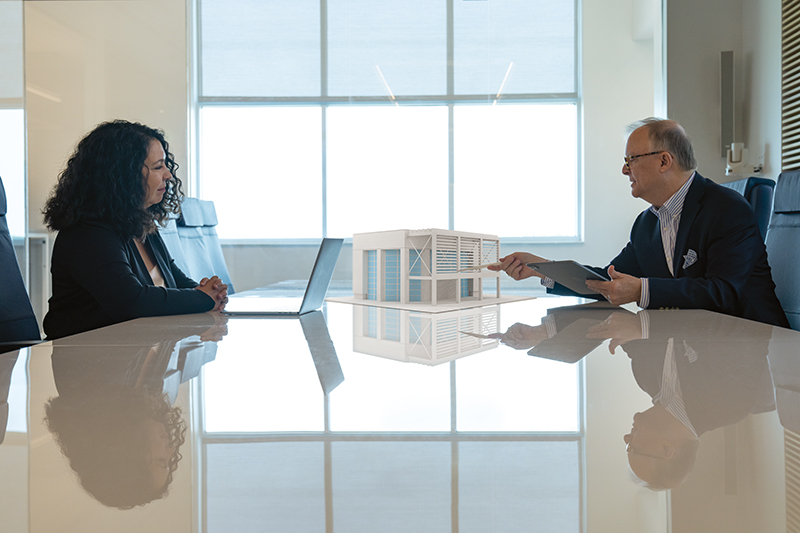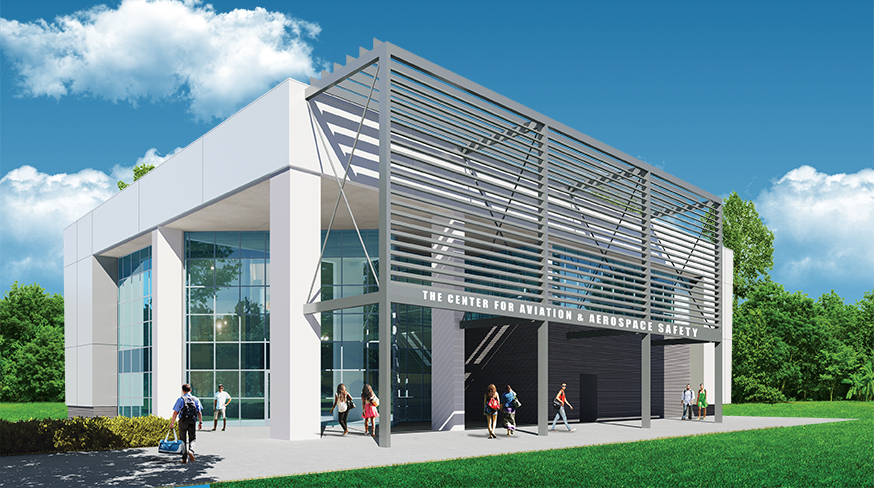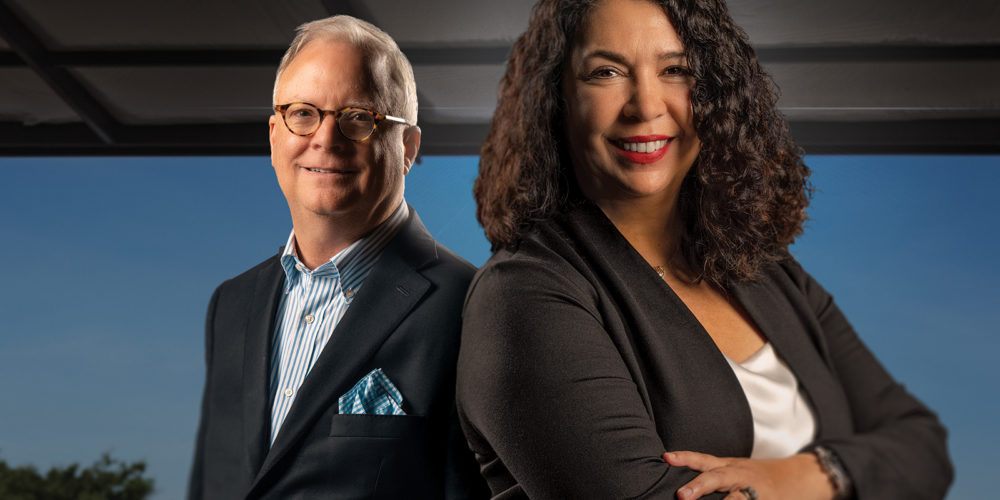Robert L. Sumwalt III (’14,’18) spent nearly 15 years at the National Transportation Safety Board, investigating high-profile accidents around the county, but it was a plane crash he saw as a teenager in his hometown that inspired his career path.
“I literally got into aviation by accident,” Sumwalt says. “I was a senior in high school. I heard about a plane crash by the local airport, and so I went by there.”
The experience didn’t make the Columbia, South Carolina, native afraid of flying. Instead, it lead him to earn his pilot’s license as a teen, spend hours in the library reading NTSB aircraft accident reports in college, then become involved in safety work as an airline pilot.
His lifelong interest in accident investigation led Sumwalt to a prominent career at the National Transportation Safety Board. Serving under four presidents, Sumwalt was a NTSB member since 2006 and served as chairman from 2017 until he retired in June 2021.
“I love flying, but I had this burning desire to try and give something back,” says Sumwalt, who was a pilot for 32 years, including 24 years with Piedmont Airlines and US Airways. “Safety was something that I was always interested in, so I think it was just a natural progression.”
Now, the renowned leader in aircraft accident investigation has returned to his alma mater to lead Embry-Riddle’s new Center for Aviation & Aerospace Safety, as its executive director and a Distinguished Fellow in Aviation Safety.
“I literally got into aviation by accident. I was a senior in high school. I heard about a plane crash by the local airport, and so I went by there.”
— Robert Sumwalt
“Robert Sumwalt’s deep knowledge of aerospace safety issues, and his professionalism and commitment to excellence make him an ideal leader of this much-needed new enterprise,” University President P. Barry Butler said in announcing Sumwalt’s hiring.
Mori Hosseini, chairman of Embry-Riddle’s Board of Trustees, told the Daytona Beach News-Journal that hiring Sumwalt to run the center is one more step toward fulfilling the board’s vision “for Embry-Riddle to become preeminent in both aviation and aerospace research, as well as education.”
For Sumwalt, it is a chance to continue his work in aviation safety with future industry leaders in newly emerging aerospace technologies and ultimately continue to find ways to make the world safer for travelers.
“We’ve had a very good safety record over the last decade or so in commercial aviation in this country, but not necessarily globally,” Sumwalt says. “There’s still a lot of work that needs to be done. We want to be a global leader in enhancing safety.”

Setting a New Course for Aviation Safety and Innovation
The Center for Aviation & Aerospace Safety’s work will focus on three areas – research, academics and professional education – says Sumwalt, who started in his new role on Jan. 4. Safety topics include traditional and emerging technologies, including unmanned aerial systems, safety management systems, data analytics, and new training systems, such as virtual and augmented reality tools.
“Future progress in air transportation, commercial space and urban air mobility will depend upon safety advances and the collaborative efforts of Embry-Riddle with its industry and government partners,” says Sumwalt.
Further, the center will also examine cutting-edge aerospace developments, such as advanced air mobility technologies, human-machine interfaces and high-tech options for enhancing safety investigations.
“It’s listening to the stakeholders – to industry and the government – and asking, ‘What is it that you need that you’re not currently getting?’” Sumwalt says. “And then seeing if we can fill those needs.”
Success Through Collaboration
One of the keys to the center’s success will be collaboration, says Sumwalt, and drawing on the university’s existing resources at all its campuses, which include locations around the U.S. and world.
“By collaborating across our three campuses and listening to our stakeholders, we want to find out if there are areas where we can enhance our already excellent safety-related academic programs,” he says.
The university also has expert faculty members in the field of aviation safety, in specialties like safety management systems and accident investigation, across campuses, he says. That gives students, professionals and corporate partners the flexibility to pick which campus is more convenient for them or which modality – in person or online – works best for their needs.

One of his colleagues and collaborators is the center’s second-in-command and chief scientist, Dr. Barbara Holder, who recently joined Embry-Riddle as a presidential fellow. In acknowledging the expertise she brings to her new role, Sumwalt says, “Her research in the aviation domain focuses on the interrelationship between human cognition, design and activity as it applies to automation, procedures, training and operational decision-making.” Holder will also provide insight into the student perspective through her role as associate professor in the College of Aviation in Daytona Beach.
Sumwalt regularly meets with College of Aviation deans from all three university campuses, plus two officials from the Robertson Safety Institute on the Prescott Campus.
“The Robertson Safety Institute is a great center in Prescott, and both residential campuses have crash labs,” Sumwalt says. “It would give someone the opportunity to customize the location of where he or she wants to take these courses.” The Center for Aviation & Aerospace will also be conducting research related to key safety issues and programs. “We’re still putting the structure in place, but we have already submitted seven research proposals to the FAA and an industry partner that we are looking to be funded, and we will continue to generate research proposals,” he says. Research will focus on identifying innovative solutions to key safety challenges working in collaboration with industry and government partners. “When we talk about research, I think it’s important that our research be relevant, rigorous and impactful,” Sumwalt says. “We want to make sure our research is independent and let the results fall out wherever they are.”
Increasing Aerospace Safety Education Options
Sumwalt, who earned a Master of Aeronautical Science degree with concentrations in aviation/aerospace safety systems and aviation human factors in 2014 from Embry-Riddle, is also looking to increase educational opportunities in aviation safety through the center. He knows the value of continuing one’s education and wants to increase access for students, including working professionals. “I was working full-time at the NTSB at the time, so there would not have been the opportunity for me to take time off and get a master’s degree,” says Sumwalt, who also was awarded an honorary doctorate from Embry-Riddle in 2018. “Had it not been for the Worldwide structure, I would not have been able to get my graduate degree, so I am thankful for that.”
He recalls taking a class in accident investigation but deliberately did not reveal his position at the NTSB because he didn’t want to be treated differently.
“It really hit me at a perfect time because the things I was learning in class I could directly apply to my job as an NTSB board member and vice versa,” he says.
Besides traditional academics, Sumwalt also wants to enhance the center’s educational offerings through professional education courses.
“We are working with an already robust professional education program in safety and business-related courses,” Sumwalt says. “So, we are looking at ways to enhance that program, based on the needs that are out there.”

For the Next Generation
For Sumwalt, leading the Center for Aviation & Aerospace Safety is a fitting culmination of a lifetime dedicated to aerospace safety.
His experiences range from chairing the Air Line Pilots Association’s Human Factors and Training Group and co-founding the association’s critical incident response program to spending eight years as a consultant to NASA’s Aviation Safety Reporting System. He also served as a freelance transportation safety analyst for CBS News and has written extensively on aerospace safety matters.
Sumwalt’s many honors include the Flight Safety Foundation-Boeing Aviation Safety Lifetime Achievement Award, the Flight Safety Foundation’s Laura Taber Barbour Award and the Air Line Pilots Association’s Air Safety Award.
Now, he is looking forward to being able to share that knowledge with the next generation and build on it as the industry changes.
“The opportunity to stand up a center for aviation and aerospace safety is an absolutely phenomenal opportunity and one that I’m extremely excited about,” Sumwalt says.
